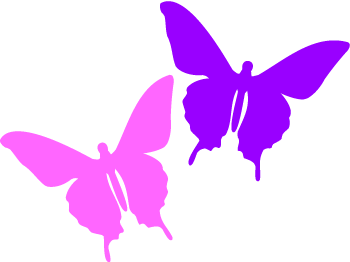Butterfly populations are a very good indicator of the health of an area's ecosystem !!
The Cabbage White was introduced to North America in the 1860's and has since spread throughout the continent.
It pollinates several plant species in the U. S.
The white is typically a double-brooded species, with two generations each year. The eggs, which hatch after about one week, are laid in April and then again in June. The female deposits them singly on the underside of leaves of their food plants
They are typically found in disturbed open areas but are also invading natural situations In wooded areas mostly in spring before the canopies close. (They seem to be becoming more forest adapted as garlic mustard increases explosively in the East.)
Avg. Wingspan: 32 - 47 mm / 1.3 - 1.9 "
Diet: caterpillars eat cabbage, red cabbage, brussell sprouts, bok choy, and kale.


Diet: butterflies take nectar from various flowers, sugar water
Kingdom: Animalia, Phylum: Arthropoda
Class: Insecta, Order: Lepidoptera
The single biggest threat to butterfly survival is habitat destruction!!





